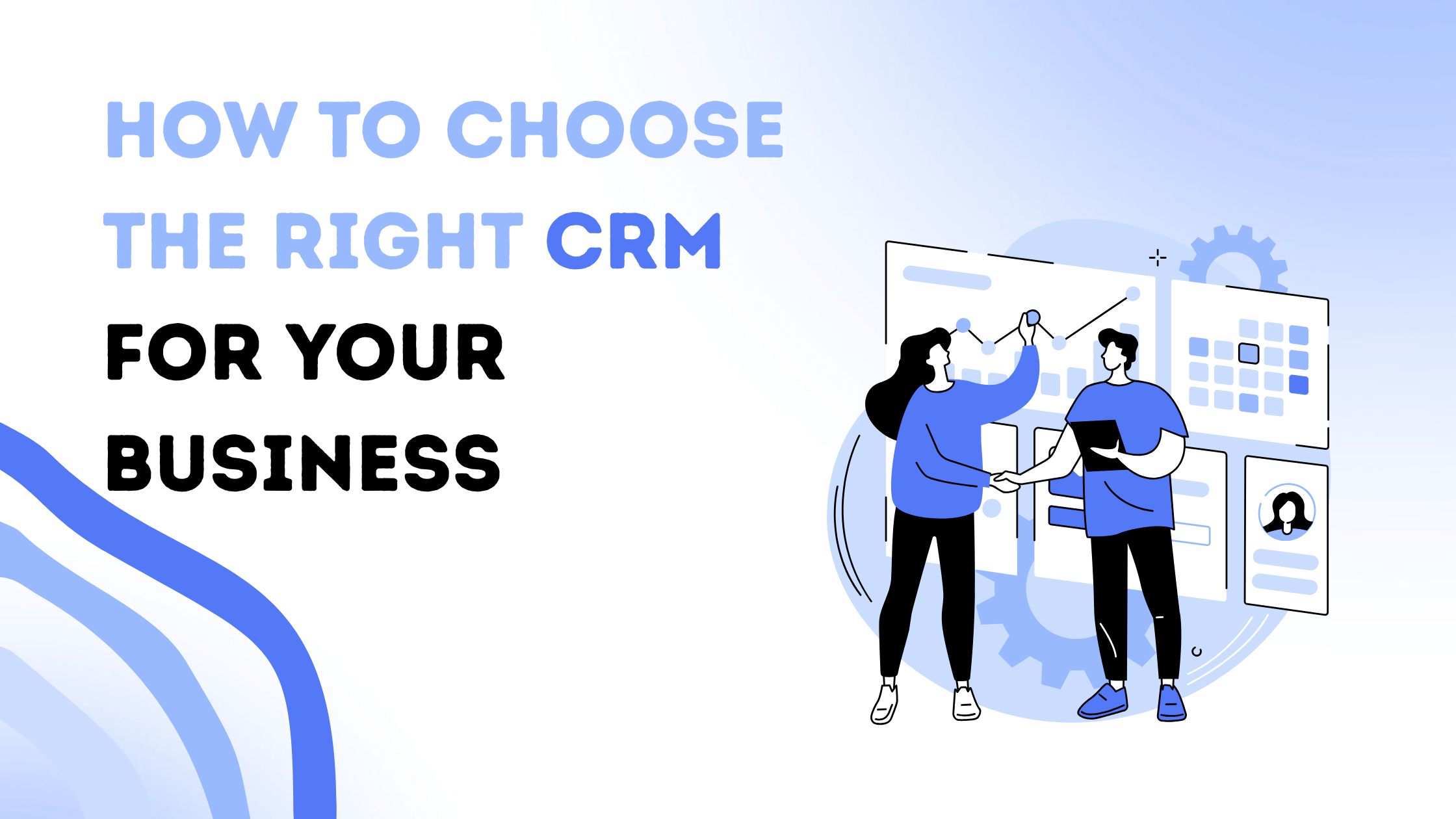In 2025, customer expectations are higher than ever. Businesses that thrive are those that build strong, data-driven relationships with their customers — and that’s where a CRM (Customer Relationship Management) system becomes essential.
However, with so many options available, choosing the right CRM can feel overwhelming. A wrong choice can waste money, frustrate your team, and slow your growth.
In this article, we’ll guide you through how to pick the perfect CRM for your business in 2025.
Why Your Business Needs a CRM in 2025
The digital landscape has changed drastically. Here’s why a CRM is no longer optional:
- Increased Competition: Businesses must deliver personalized experiences to stay competitive.
- Remote Work: Distributed teams need centralized access to customer information.
- Data-Driven Decisions: Modern CRMs offer real-time analytics to make smarter business moves.
- AI and Automation: Automating follow-ups, lead scoring, and customer support saves time and increases efficiency.
- Customer Retention: Managing relationships effectively leads to better loyalty and lifetime value.
In short, it acts as the heart of customer interactions — ensuring no lead is lost and no customer feels neglected.
Key Factors to Consider Before Choosing
Here’s what you need to evaluate:
1. Your Business Size and Needs
- Small Business: Look for lightweight, easy-to-use like HubSpot or Zoho.
- Large Enterprise: Consider scalable and highly customizable solutions like Salesforce or Microsoft Dynamics.
2. Budget
- Free: Great for startups but often have limited features.
- Paid: Offer advanced features like automation, in-depth analytics, and integrations.
3. Ease of Use
- Choose a CRM with an intuitive dashboard.
- Ensure your team can adopt it easily without extensive training.
4. Customization and Scalability
- Can you modify workflows, fields, and reports as your business grows?
5. Integration with Other Tools
- Does the CRM connect seamlessly with your email marketing, accounting, and e-commerce tools?
6. Mobile Accessibility
- Check if the CRM offers a robust mobile app to manage leads on the go.
7. Automation Features
- Look for CRMs that offer automated task management, email sequences, and lead nurturing.
8. Analytics and Reporting
- Strong CRMs provide actionable insights, not just raw data.
9. Security and Compliance
- Ensure the CRM complies with GDPR, CCPA, or other regional data protection laws.

Types of CRM: Which One Fits Your Business?
There are three main types:
1. Operational CRM
Focuses on streamlining sales, marketing, and service processes.
Best for: Businesses looking for workflow automation.
2. Analytical CRM
Focuses on analyzing customer data to improve decision-making.
Best for: Companies wanting deep insights into customer behavior.
3. Collaborative CRM
Allows different departments (sales, marketing, support) to share customer data.
Best for: Businesses with multiple customer touchpoints.
Choosing the right type depends on your main goals — whether it’s sales growth, better insights, or cross-team collaboration.
Top CRM Trends to Watch in 2025
Stay ahead of the curve by choosing a CRM that aligns with these trends:
- AI Integration: Predictive lead scoring, customer sentiment analysis, and chatbot automation.
- Voice Technology: CRMs supporting voice commands and conversational AI.
- Hyper-Personalization: Custom-tailored communications based on real-time behavior.
- Blockchain Security: Enhanced data privacy through decentralized storage.
- Omnichannel Support: Managing customers across email, chat, social media, and phone from one dashboard.
A future-ready CRM should already be evolving with these technologies.
Common Mistakes to Avoid When Selecting
- Choosing Based Only on Price: A cheap CRM without needed features will cost more in lost opportunities.
- Ignoring User Experience: If your team hates using it, they won’t use it.
- Skipping Integration Checks: Make sure it fits into your existing tech stack.
- Overlooking Future Growth: Think beyond today’s needs. Your CRM should grow with your business.
Step-by-Step Guide to Choosing the Right CRM
- Define Your Goals: Identify your CRM’s must-have features based on your business objectives.
- Research Options: Shortlist a few CRMs that meet your criteria.
- Test Demos/Free Trials: Hands-on experience is crucial.
- Gather Team Feedback: Involve users early to ensure adoption.
- Compare Costs vs. Features: Don’t just focus on pricing; focus on value.
- Make a Data-Driven Decision: Choose the CRM that aligns best with both your short-term and long-term goals.
Final Words
In 2025, a CRM is more than a tool — it’s a critical business partner. Choosing the right CRM ensures better customer relationships, smarter operations, and faster growth. Take the time to assess your needs carefully, test your options thoroughly, and invest in a CRM that will help you build a stronger, smarter, and more successful business.
Remember: The right CRM is not just about managing contacts; it’s about building connections that last.
FAQs
1. What is the best CRM for small businesses in 2025?
Some top options include HubSpot CRM, Zoho CRM, and Pipedrive — all offer user-friendly platforms and affordable pricing for growing businesses.
2. How much should I budget for a CRM?
CRM pricing varies widely. Free versions exist, but expect to spend $20–$150 per user per month for advanced features like automation, analytics, and integrations.
3. How long does it take to implement a CRM?
Depending on the complexity, CRM setup can take from a few hours to a few weeks. Planning ahead, involving your team, and using vendor support can speed up implementation.
4. Can a CRM help improve sales and customer service?
Yes! A CRM organizes customer data, automates follow-ups, personalizes outreach, and ensures no lead or support ticket is forgotten, leading to higher sales and better customer satisfaction.
5. Should I choose a CRM with AI features?
Absolutely. In 2025, AI-enhanced CRMs can predict customer behavior, automate repetitive tasks, and deliver insights that improve your marketing, sales, and service performance.
